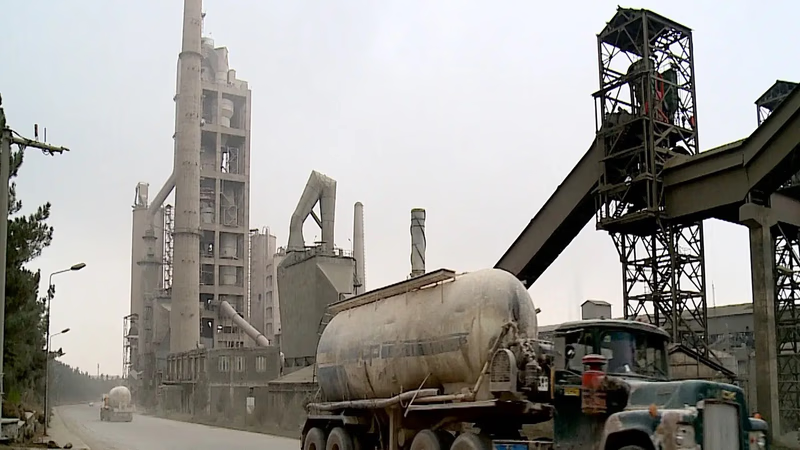
Cement storage solutions ensuring quality in Middle East trade.
To ensure the quality and integrity of cement during storage, several precautions should be taken. Cement should be stored in a dry environment to prevent moisture absorption, which can lead to clumping and reduced quality. The storage area should be well-ventilated to maintain proper air circulation and prevent the buildup of humidity. Avoid storing cement in areas prone to leaks or condensation. Cement bags or bulk cement should be protected from direct contact with moisture. Store cement off the ground on pallets or racks to prevent moisture absorption from the floor. If storing bags, ensure they are stacked in a manner that allows air circulation and minimizes contact with walls or floors. Consider covering bulk cement or using moisture barriers if necessary.
Extreme temperatures can affect the quality of cement. It is advisable to store cement in a temperature-controlled environment to prevent excessive heat or cold. Avoid exposing cement to direct sunlight or storing it in areas subjected to freezing temperatures. Implement a FIFO system to ensure older stocks are used first. This practice helps maintain freshness and quality by preventing cement from sitting in storage for an extended period. Proper inventory management and labeling can aid in organizing and tracking the stock. Cement should be stored away from materials that can contaminate it, such as chemicals, fuels, or substances with strong odors. Contamination can affect the setting and performance of cement. Keep the storage area clean and free from debris or spillages that could mix with the cement.
Special conditions are required for cement storage. Cement should be stored dry in the warehouse because cement reacts with water and humid weather can damage it. If the cement is stored in conditions without water and moisture, it can be stored for a longer period of time. The time of storing bulk cement in the warehouse also reaches three months in favorable conditions. However, after 4 to 6 weeks after storage and maintenance of cement, about 20% of the strength of cement is reduced, even if stored in suitable conditions. But if stored in a relatively humid environment, this moisture causes weathering of the cement.
The method of storing cement in the warehouse depends on the warehouse environment. Outdoor and indoor cement storage are different. When storing cement bags, care must be taken in order not to tear the cement bags. Also, bagged cement should be free of lumps because it indicates weathering in the cement bag. Of course, if there are lumps, they should be easily crushed by the pressure of your fist; otherwise you should not use this cement for structural concrete. Cement bags should be 10 cm away from the ground and at least 10 cm away from the wall. Stacked bags should not exceed 10 bags. Do not use stored bulk cement unless stored in a silo equipped with a drying blower.
Ensure that the storage area is secure and access is restricted to authorized personnel. This helps prevent theft, tampering, or unauthorized handling of the cement. Implement security measures such as surveillance cameras, locks, and appropriate access controls. Periodically inspect the stored cement for any signs of moisture, clumping, or deterioration. Check bags for damage or signs of pests. Promptly address any issues to prevent further damage or quality degradation. Provide training to personnel involved in cement storage on proper handling, storage guidelines, and safety precautions. Emphasize the use of personal protective equipment (PPE) when handling cement, such as gloves and dust masks, to protect against potential health hazards.
-
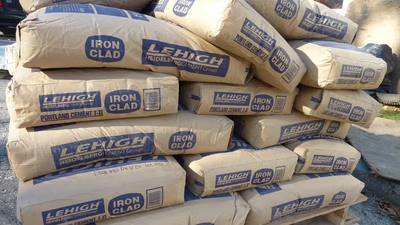
The cement industry is undergoing significant transformation aimed at reducing environmental impact and enhancing sustainability. Key initiatives include the development of alternative cementitious materials, such as geopolymers and calcium sulfoaluminate cements, which produce lower carbon emissions than traditional Portland cement. The sector is increasingly focusing on energy efficiency, cleaner production technologies, and the use of waste materials as alternative raw materials or fuels. This trend not only aids in waste reduction but also promotes resource conservation. As urbanization accelerates, particularly in emerging economies, the demand for cement remains strong due to ongoing infrastructure development needs. The industry is also adapting to prefabrication and modular construction methods, which enhance efficiency and reduce material waste. Furthermore, advancements in technology are expected to revolutionize cement manufacturing through innovations like carbon capture and utilization/storage (CCU/CCS) and novel kiln designs. Digitalization and automation are being embraced to optimize production processes, improve quality control, and enhance operational efficiency through data analytics and machine learning. These changes reflect a broader shift towards sustainability and efficiency within the industry as it prepares for future challenges related to population growth, environmental concerns, and technological advancements.
-
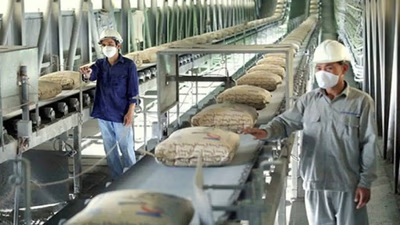
The cement industry is set to undergo significant transformations focused on sustainability and efficiency. Key trends include the adoption of alternative cementitious materials, such as fly ash and slag, which can reduce carbon emissions and promote waste utilization. Innovations in roller mill design will enhance grinding performance while minimizing energy consumption. The integration of digital technologies, including data analytics and artificial intelligence, will optimize production processes and improve product quality. Automation will play a crucial role, potentially reducing the need for manual labor and shifting workforce requirements towards information engineers and technical specialists. Additionally, advancements in preheating technologies and heat recovery systems will further enhance energy efficiency in clinker production. The industry is also expected to embrace circular economy principles by utilizing industrial by-products as alternative raw materials. As construction practices evolve with prefabrication and 3D printing, cement manufacturers must adapt their products accordingly. Overall, these changes aim to create a more sustainable, efficient, and technologically advanced cement industry.
-

Proper cement storage is crucial for maintaining its quality and integrity. Cement must be kept in a dry, well-ventilated environment to prevent moisture absorption, which can lead to clumping and reduced performance. It is essential to store cement off the ground on pallets or racks, ensuring that bags are stacked to allow air circulation and minimize contact with walls or floors. Extreme temperatures should be avoided; thus, a temperature-controlled environment is recommended. Implementing a FIFO (First In, First Out) system helps ensure older stocks are used first, maintaining freshness and quality. Additionally, proper inventory management and labeling are vital for tracking stock effectively. Cement should be stored away from contaminants like chemicals or fuels that could affect its setting properties. Regular inspections for moisture or damage are necessary to address any issues promptly.
Security measures should also be in place to restrict access to authorized personnel only, preventing theft or tampering. Training staff on safe handling practices and the use of personal protective equipment (PPE) is essential for health safety during cement storage operations.
-
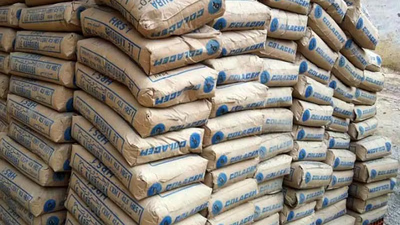
Loading cement for consumption and managing a cement warehouse involves receiving bulk or bagged cement from manufacturers and storing it for distribution. Bulk cement is transported in specialized vehicles, while bagged cement is packaged in standard bags. The loading process utilizes pneumatic or mechanical systems to transfer cement from storage to transportation vehicles. Warehouse design must prioritize storage capacity, accessibility, ventilation, and safety regulations. Efficient logistics planning is essential for optimizing delivery routes and minimizing costs. Orders can be received through various channels, and the loading process may involve conveyor belts or forklifts. Proper cleanliness of the warehouse environment is crucial to maintain quality during storage and loading. Cement can be provided in bulk or bagged forms, with specific labeling requirements for each type.
Inventory management ensures timely availability of cement by tracking shipments and implementing a first-in-first-out system. Quality control measures are necessary to meet standards and prevent contamination.
-
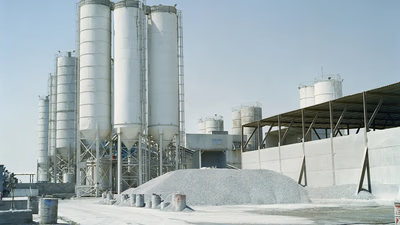
The Middle East, particularly the GCC countries, is a significant player in the global cement market, with India being the top destination for cement exports. In the first five months of this year alone, over 5. 8 million tons of cement valued at nearly $128 million were exported from the region. The demand for cement in the GCC nations stems from extensive construction and infrastructure projects. North African countries like Egypt and Algeria also import substantial amounts of cement due to their ongoing development needs. East African nations such as Kenya and Tanzania are similarly increasing their imports as urbanization accelerates. Challenges facing the industry include supply chain disruptions, increased production costs, and transportation issues exacerbated by the COVID-19 pandemic. Other notable importers include Iraq, Kuwait, and Afghanistan, which rank among the highest in terms of import value.
The UAE and Saudi Arabia are leading exporters within the region, bolstered by their robust cement industries. Oman is also expanding its production capacity to enhance export capabilities. Additionally, Turkey and Iran contribute significantly to regional exports due to their established cement sectors.
-
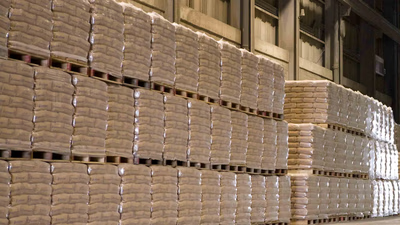
Cement is a crucial building material that binds sand particles, forming a solid structure essential in construction. It is produced by heating calcareous materials, clay, and silica at high temperatures, resulting in a durable product that hardens when mixed with water. The most common type is Ordinary Portland Cement (OPC), used for general construction. Variants like White Cement and Rapid Hardening Cement cater to specific needs, such as aesthetics and quick strength development. The production process involves extracting raw materials, crushing them into powder, and heating them in a kiln to create clinker, which is then ground into cement powder. Cement"s chemical reaction with water during hydration leads to hardening, providing strength to various structures including buildings, bridges, and roads. However, cement production has environmental impacts due to greenhouse gas emissions. Efforts are underway to mitigate these effects through alternative materials and energy-efficient technologies.
Understanding the properties and applications of cement is vital for stakeholders in the Middle East trade platform and B2B marketplace Asia. "
-
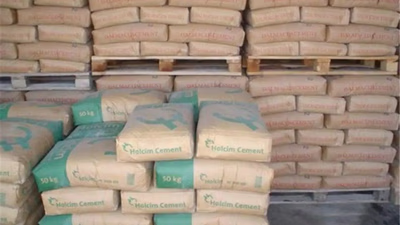
LafargeHolcim leads the global cement industry, operating in over 70 countries. Other major players include China"s CNBM and Anhui Conch Cement, both known for their extensive production capabilities and innovation. HeidelbergCement from Germany and Cemex from Mexico also rank among the top producers, emphasizing sustainability and customer-centric solutions. In 2019, China maintained its dominance with a production of 2200 million tons, followed by India at 320 million tons and Vietnam at 95 million tons. The United States ranked fourth with 89 million tons, while Egypt and Indonesia produced 76 million and 74 million tons respectively. Iran"s production increased to 60 million tons, elevating it to seventh place globally as Turkey"s output fell significantly. Other notable producers include Russia, Brazil, South Korea, and Japan. The cement market is characterized by a mix of established companies focusing on innovation and sustainability while navigating fluctuating production rates across different regions. "
-
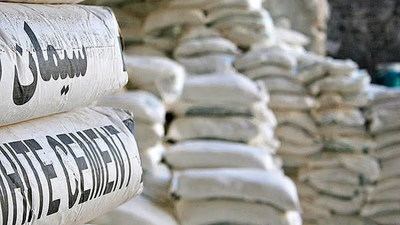
Various types of cement serve distinct purposes in construction, each tailored to meet specific strength and durability requirements. Ordinary Portland Cement (OPC) is the most common, suitable for general construction like residential buildings and pavements. Portland Pozzolana Cement (PPC) enhances workability and durability, ideal for hydraulic structures and marine environments. Other types include rapid hardening cement for expedited projects, sulphate resistant cement for sulfate-rich environments, and blended cements that improve sustainability by incorporating industrial by-products. Each type of cement is formulated to address unique environmental conditions and project demands, ensuring optimal performance in diverse applications. The choice of cement affects workability, setting time, and overall structural integrity. As sustainability becomes a priority in construction, blended cements are gaining traction due to their reduced environmental impact.
-
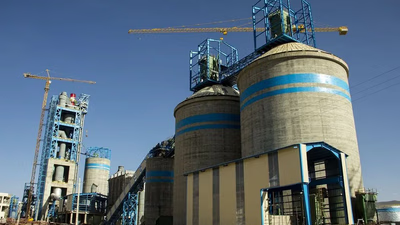
High-tech cement and clinker represent advanced materials in construction, offering enhanced performance, durability, and sustainability. Innovations include blended cements that incorporate supplementary cementitious materials (SCMs) like fly ash and slag to improve strength and reduce environmental impact. Low-carbon cements aim to lower CO2 emissions through alternative binders or modified formulations. High-tech clinker production focuses on reducing environmental effects by utilizing novel binders and integrating carbon capture technologies. These advancements are essential for achieving sustainable construction practices, balancing performance with economic viability. The industry is evolving towards producing innovative cement-based products such as lightweight and self-healing concrete, driven by technological progress. However, demographic changes and overcapacity in the cement sector may lead to a significant decline in demand for traditional cement by mid-century. As developing countries modernize their infrastructure, some cement plants may become obsolete or need to adapt their operations.









